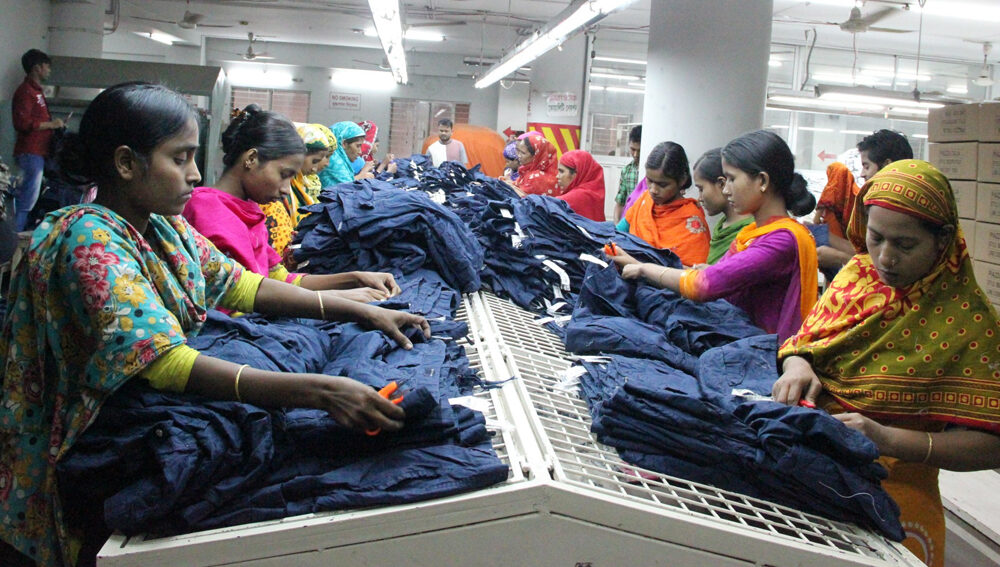Once derided as an ‘international basket case’ following its emergence as an independent nation in 1971 after a bitter war of liberation with Pakistan, Bangladesh is now lauded as a development success story. How can one explain this unanticipated transformation?
In an insightful and widely read piece, Kaushik Basu offers ‘clues’ in making sense of a ‘large-scale historical (phenomenon)’. He joins an illustrious list of external experts that have heaped praise on Bangladesh. Indeed, the Economist, in its inimitable style, declared that Bangladesh is now ‘out of the basket’.
Basu highlights several features of Bangladesh’s transformation. There is steady and increasingly rapid growth, surpassing that of Pakistan for twelve consecutive years and closing in on India’s growth record which is now acknowledged to be the fastest in the world. But it is in the domain of social indicators that Bangladesh has attracted global attention. Today, its life expectancy, at 72 years, is several years more than Pakistan’s and India’s. There has been a remarkable reduction in infant and maternal mortality and substantial progress in poverty reduction.
Basu credits these impressive gains to a development agenda that embraced the ‘empowerment of women’, fostered financial inclusion among the unbanked poor, nurtured a market-driven approach epitomized by the phenomenal rise of the export-oriented garments industry which is now second only to China in terms of size and scale. He notes that flexible labour market institutions were an important element in enabling the rise of a world-class garments industry.
Among key stakeholders that put this development agenda into action, Basu credits the collective activism of ‘nongovernmental organization’ (NGOs) but also acknowledges the supportive role played by the government. Some of these NGOs have now become global icons; they are the largest in the world and operate as multinational entities.
Basu is mindful of the fact that Bangladesh faces significant challenges ahead. He is particularly concerned about the threat posed by religious fundamentalism, but he is cautiously optimistic that the current government will be able to temper the rise of religious fundamentalism and maintain the tempo of the nation’s development trajectory.
Is such optimism, however cautiously expressed, justified? A response to this concern requires a deeper comprehension of Bangladesh’s political economy. After all, Bangladesh represents a paradox. Despite being nominally democratic, its multiparty politics is dysfunctional and divisive.
Bangladesh was ruled by military dictatorships for the first 15 years of its existence as an independent nation. It engaged in a short-lived experiment with socialism. All measurable indicators suggest that it is a conspicuous case of poor governance. How could an eclectic mix of progressive social policies and market-driven economic strategy emerge in such an environment?
In a finely crafted study, Naomi Hossain seeks to offer an answer. Building on a growing genre of Bangladesh-centric political economy literature, Hossain argues that an implicit social contract or political settlement among contending members of the ruling elite emerged from the killing, destruction and displacement caused by the war of liberation in 1971 followed by the horrific famine of 1974 that led to well over a million deaths. The landless rural poor were the major victims. The 1974 famine, more than any other event, undermined the moral legitimacy of the prevailing government led by Sheikh Mujib, the founder of the nation. It also played in important part in motivating disgruntled members of the ruling elite to engage in a violent overthrow of the Mujib government that culminated in the tragic assassination of Sheikh Mujib and a large number of his family members.
What was the nature of the political settlement of the post-Mujib era? Hossain argues that it united policy-makers, regardless of their political affiliation, to ensure that governments had a moral obligation to the poor and vulnerable, especially in rural communities, to protect them against natural disasters and the worst forms of material deprivation. This political settlement also encompassed the need to cede organizational space to NGOs and the international donor community in the design and application of economic and social policies, especially in the area of public health. The ‘basket case’ soon became the world’s ‘aid lab’.
Such a strategy happened partly by default given the limited analytical and administrative capacity of a fledging government of a newly independent government. Furthermore, the emphasis on women’s empowerment was nurtured in a social environment in which the inhibitions emanating from a conservative and patriarchal Muslim majority country were upended by major disruptions wrought by the liberation war and natural disasters.
The post-Mujib political settlement that spawned pro-poor, market and gender-friendly economic and social policies can also be linked to the short-lived experiment with socialism that was widely perceived as a failure. It convinced contending members of the ruling elite to embrace a market-driven approach to development with a newly ascendant business community ensuring that they had adequate political representation.
What matters to the future of Bangladesh is the future of this political settlement. It has endured the heavy hand of military dictatorships and the volatility of multi-party politics. Now that the current government is hardening its authoritarian grip on the political system and paving the way for a de facto one party state, concerns have been expressed that one might see ‘the return of the basket case’. As mainstream opposition politicians and other stakeholders find the political space being curtailed, the current government might paradoxically foment religious fundamentalism even as it seeks to repel the forces of reaction.
Iyanatul Islam is an Adjunct Professor at the Griffith Asia Institute and former Branch Chief, ILO, Geneva.








